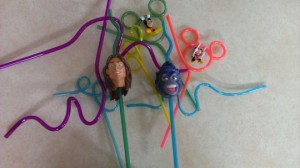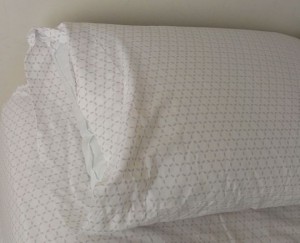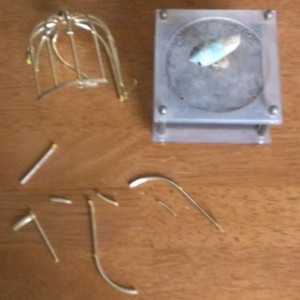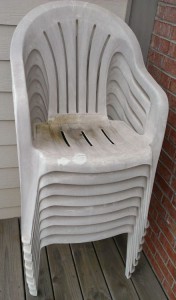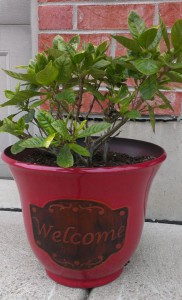Although one wouldn’t know it from the sensational news headlines, both war and violent crime are at historically low rates and are still falling across the globe. For the first time since our ancestors emerged from caves and got organized enough to raise armies, most of the world’s population has never seen the horrors of war firsthand.
Yet battlefield metaphors and imagery are commonplace in modern life. Our cultural narratives lag behind our modern realities. The stories we tell ourselves to make sense of our world are drawn largely from our ancestors’ everyday lives, as well as their customary word choices. We still have many folk sayings that refer to horses, for instance, even though people have been driving cars for more than a century. Our history shapes our thoughts much more than we realize it does.
Put another way, the world’s long history of war has left us with the cultural expectation of going to war. Subconsciously, we think of ourselves as soldiers, even though most of us haven’t actually served. We watch popular movies full of epic battles, read sword-and-sorcery novels, and play war games on our computers. Public policy decisions often are characterized as going to war, such as “war on drugs.” If we have a medical condition (or a family member does), we’re likely to think of it as an evil monster we must fight bravely to slay. Today’s political factions are always battling over one thing or another. Social advocacy is commonly described as fighting for a cause.
Last week I visited the blog Rambling Woods, an amateur naturalist’s site, and read a post about monarch butterflies. Monarchs migrate annually, and they lay their eggs only on milkweed, which no longer grows in cornfields because of herbicide use made possible by genetically modified corn. An article referenced in the blog post encouraged people to fight to save the monarch migration by planting milkweed.
There’s an area in my backyard where I would like to plant native wildflowers, and I commented on the blog that I’ll make sure to include milkweed. It’s certainly a worthwhile project, helping to restore the monarch population while also planting attractive landscaping. But if I had to pick one word to describe this image, “fight” would not be the first one that came to mind.

(photo credit: publicdomainpictures.net)
Six years ago, I began doing volunteer work for the Autistic Self Advocacy Network (ASAN), a nonprofit organization that teaches leadership and self-advocacy skills, publishes educational materials, and addresses public policy issues relating to autism from a disability rights perspective. I serve in the position of board secretary, which consists of preparing agendas for board meetings, keeping the minutes, and generally keeping the board’s documents organized. It’s a mundane job, but every corporate board needs a secretary; and I see it as a way to do some good in the world.
Although one might think an educational charity wouldn’t be controversial, ASAN, like many other groups, has had to deal with the unpleasant reality of today’s battle-primed social environment. People who fight for causes naturally expect to find enemies; it’s implied in the metaphor. There are many causes relating to autism—research, services, education, disability rights, and more. So it’s not surprising that people would have strong feelings about particular issues and that there would be arguments.
But there was some major ugliness online a few years ago that went way beyond ordinary arguments, turning into virtual scorched-earth warfare among the supporters of various factions. Rambling conspiracy theories, nasty gossip from the gutter, et cetera. No doubt the people responsible for that stuff saw it as perfectly justified—after all, they were at war and fighting to destroy their enemies, and war isn’t supposed to be pretty.
The situation calmed down after a while. I’m still reflecting on the broader issues, though—all the negativity we take for granted in society, and the addictive nature of the resulting drama. War is exciting; that’s why it plays a central role in so many of our stories. But when we constantly feel that we’re at war, it becomes exhausting and harmful. After all, war is scary and people get killed; so having one’s thoughts full of battlefield images naturally leads to feeling that one’s life is in danger, with all the resulting anxiety.
At first, it’s empowering to imagine ourselves as righteous soldiers fighting valiantly for our causes. We feel strong and motivated. We pour our energy into the fight, and we get things done. It may take years before we realize how depleted we’ve become—both mentally and physically. Even when we’re not actively battling against our perceived enemies, we still have those old arguments replaying themselves in our heads, uselessly sucking up even more energy. Then we’re left with chronic run-down feelings, and possibly more serious health problems besides. When we reach that point, we end up not getting much done at all, either for our causes or in our personal lives. Joy becomes a distant memory.
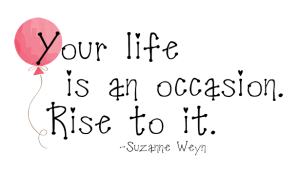
(word-art image courtesy of Bits of Positivity)
When I was nine years old, my grandma gave me a set of old Christian novels she had bought at a garage sale. Presumably she meant to instill good old-fashioned moral values in my impressionable young mind. I have to admit, I was more interested in Nancy Drew mysteries at that age; but I did read the books after a while. One of them, White Banners by Lloyd C. Douglas (1936), must have made more of an impression than I realized at the time. I’ve had it in my thoughts recently because it explored the practical benefits of avoiding battles in everyday life.
The author’s premise was that when we choose to walk away from disputes, we usually gain more than we lose. In addition to building character, it gives us more time and energy to put toward useful work. The title comes from a passage describing this approach to life as flying white banners, not white flags of surrender. Even though winning a dispute may feel like a great victory, chances are it’s not as productive as the work that might otherwise have been accomplished.
I would also say that avoiding unnecessary conflict promotes self-awareness. Often we don’t even notice all the battle metaphors in our thoughts. Because they’re everywhere in our society, they seem like the normal way to look at things. It takes a conscious effort to consider other perspectives and to shift our thoughts in more positive directions. Instead of fighting for our causes on an imagined gory battlefield, we can simply choose to put on our gardening gloves and get busy planting those seedlings. The work will get done just as effectively (and perhaps more so) without the drama; and it’s a much healthier way to go through life.

